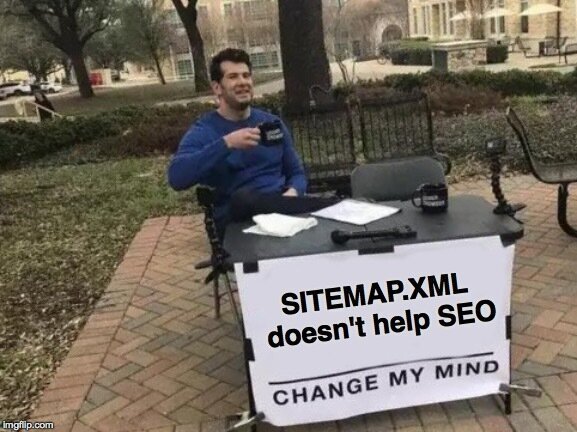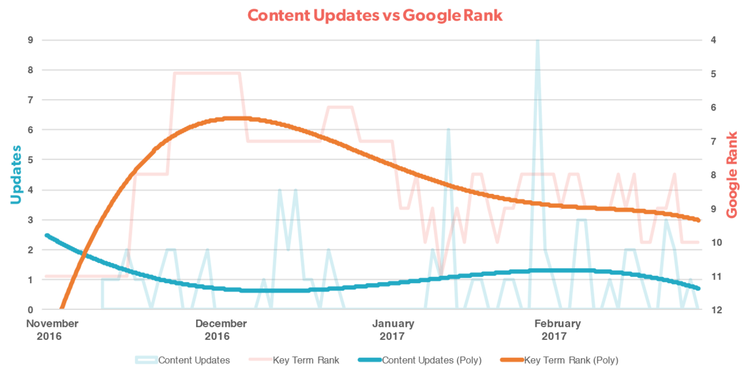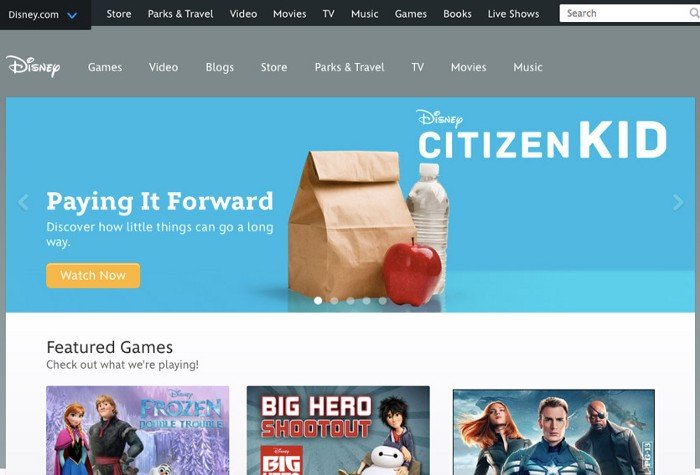Blog
Over the years, I’ve written a lot of blogs on several sites. Some of my favorites are here, mixed in with my original content. Enjoy.

More Calls to Action = Lower Conversion
When more is less: A case study in three screenshots.

California SB1486 may make accessibility audits help avoid lawsuits
A bill that would modify California law on website accessibility has been making its way closer to law. It has some very welcome provisions for those who care about accessibility – and gives the law some teeth for enforcement.

The Sunk Cost Fallacy in content marketing and SEO
I tend to be very reluctant to remove old content, because Internet Bit Rot is a serious problem. It’s hard to find old-but-good information when you need it.
But over time, I've softened my "keep all content forever" position. Jimmy Daley at Animalz offers useful advice to identify when content has served past its sell-by date, and how to convince your boss to let it go.

How to make an accessible carousel
“A good indication that a carousel is a poor choice of interface is that the term derives from a kind of spinning disk festooned with impaled horses.”
If you absolutely must use a content carousel, here’s how to do it well. You can have good accessibility and usability, and avoid some pitfalls. Includes a complete working demo with full markup, styles and script.

Quick Stats, CRO edition: Form Conversion
Need to talk a client out of making a really bad decision on a web form? Here are some quick stats you can use to try to talk them off the ledge.

Are domains with a keyword in them good for SEO? Not since 2012.
A couple years ago, a domain squatter offered to sell "massachusettstriallawyer.com" to one of my clients for $500. They came to me for a sanity check. Short answer was "No", and the long answer was “Oh HELL no”.
So let's talk about why.

Accessibility Checklists
Ever see a project requirement "Must be accessible to WCAG 2.0 Level A" and wonder what the heck that means? We're here to rescue you with this quick and easy checklist!
If you're a TL;DR type, click the link, remember that your work should meet Level A guidelines, and move on with your life. But for the curious…

Do sites really need a Sitemap.xml for good SEO?
There is no shortage of SEOs saying a sitemap.xml is practically mandatory. But does SEO really benefit from a sitemap file?
(Betteridge’s Law applies. Mostly.)

What California's CCPA and CPRA consumer privacy laws mean for your website (2023 Update)
The California Consumer Privacy Act of 2018 established a number of consumer privacy rights. The California Privacy Rights Act of 2020 extended it. CPRA’s new requirements go into effect in January.
Are you ready for CPRA? Here’s the executive summary of what you need to know. Updated for 2023.

Should I Google AMP my website?
I get a lot of questions about Google AMP and what it means for my clients’ websites. In this article, I’ll discuss what AMP is, some pros and cons of adding AMP to your website, who benefits from AMP, and whether you should AMP your site.
(Or you can skip it. As of 2021, Google is no longer shoving it down our throats. Yay!)

SEO lessons learned: There are no “days off” in content development
You already know that SEO benefits from frequent content updates. We discovered the hard way the inverse is true, too. Inconsistent updates can be a major contributor to losing rank.

Best URL structures for global websites
When working on a multi-lingual or regionalized website, one of the first and most important decisions is how to handle URLs. Do you use ccTDLs? Country-codes subfolders? Subdomains? Do you want mysite.co.uk or mysite.com/uk or uk.mysite.com?
These decisions have a tremendous impact on your SEO, how people perceive your brand as a whole, how local search engines view your brand, as well as the internal politics of each region or division within your brand…

Do Homepage Carousels Work?
Whether you call them slideshows, rotating banners, multiple offers, or carousels, you’ve seen them. You visit a new website, see a big banner or hero graphic, and a couple of seconds later, it changes, then changes again. They’re really popular. But do they work?
Here’s the data from the research. Spoiler: It’s pretty damning.
